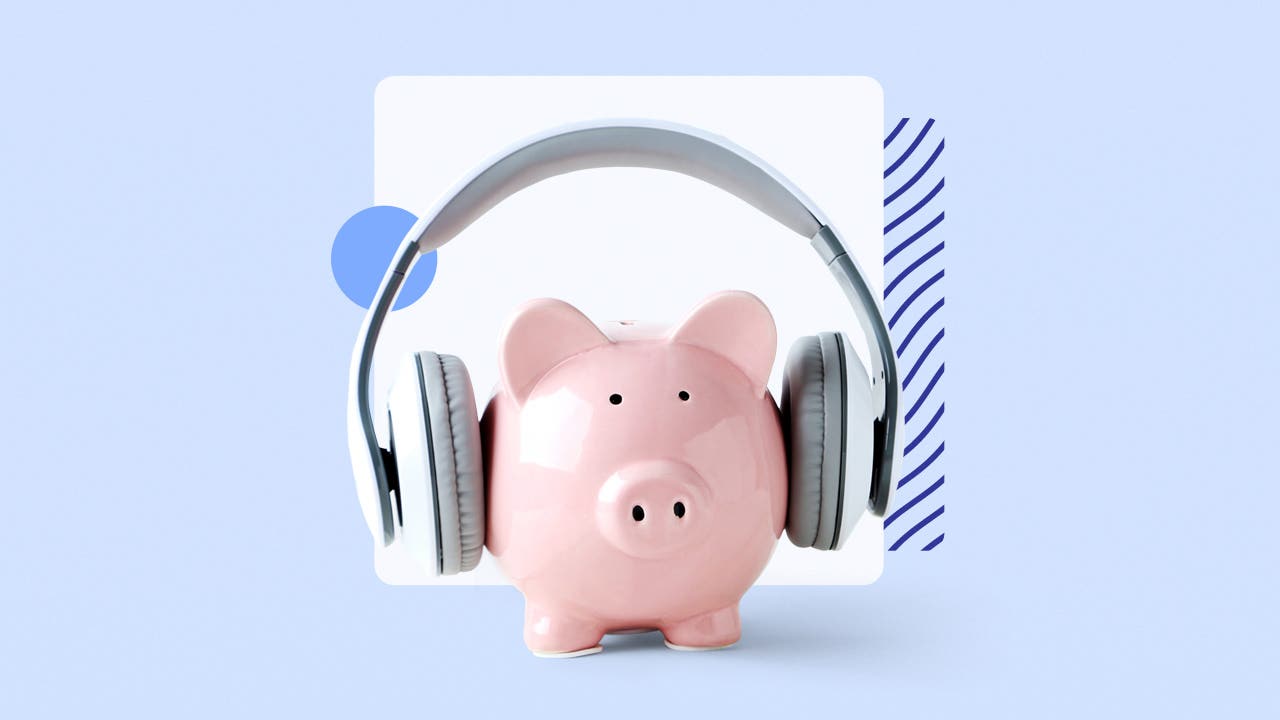Loud budgeting: How this TikTok trend is influencing Americans to manage their money

Loud budgeting is a trend that encourages people to be open and vocal about their money goals, fostering comfort in saying “no” (loudly or not) to unnecessary expenses. It speaks to a much larger movement in personal finance: More people are turning to social media for financial education.
Specifically, loud budgeting became popular on the social media platform TikTok. The term was coined by TikToker and popular media personality Lukas Battle in a video looking ahead at finances in 2024. Though some might be skeptical of the role social media plays in finances, many experts endorse this trend — partly because it’s rooted in financial practices that have withstood the test of time.
“I’ve been doing loud budgeting for years, before it had a term,” says Giovanna “Gigi” Gonzalez, a financial influencer – or “finfluencer” – on TikTok. “Now that there’s a name for it, we can keep exploring this concept.”
Here’s a breakdown of loud budgeting, how it can help you, and what this trend means for the role of social media in finances.
What is loud budgeting?
At the end of 2023, Battle posted a TikTok in which he described loud budgeting as “the opposite of quiet luxury.” It’s an approach to spending — and to daily life — rather than a strict rule, and it involves vocalizing financial goals and spending limits to those around you.
@lukasbattle Replying to @operelly ♬ original sound – Lukas Battle
“Loud budgeting encourages you to get clear on money goals,” Gonzalez says. “So when people or strangers on the internet are encouraging you to spend on things or products that are misaligned with those money goals that you set for yourself, you have the control to say, ‘No, I don’t want to spend money on this.’”
As a financial strategy, loud budgeting is designed to help you save more in the long run towards important financial goals. Its catchy phrasing and the entertaining content produced around it aside, loud budgeting’s popularity testifies to how social media influences personal finance, and how more and more people rely on platforms such as TikTok to seek out financial help.
The role social media plays in personal finance
Gigi Gonzalez is one of many finfluencers who use their social media presence to promote financial awareness and help popularize trends like loud budgeting. She notes how, specifically with TikTok, it’s easier for some audiences to engage with and learn about financial topics over social media.
“Tiktok is a safe space where people can ask questions, especially anonymously,” she says. “A lot of people have anonymous accounts so they don’t feel ‘stupid’ for asking them, whereas they might not feel as comfortable asking a financial professional in a suit at a financial institution.”
The combined nature of the app’s anonymity and its easy-to-digest format has made TikTok a popular source for financial education, particularly for younger people. According to a poll by WallStreetZen, 76 percent of Gen Zers (aged 18 to 26) said they learn about personal finance from TikTok and YouTube.
Social media and its trends, however, aren’t always the most reliable resource for personal finance. In fact, about one-fifth of consumers surveyed by Bankrate said they felt negatively about their finances as a result of seeing social media posts — that number jumps to almost one-third (30 percent) for Gen Zers. On top of that, there’s the risk of misinformation being spread and popularized.
Still, it’s undeniable that social media plays a significant part in how consumers manage their finances, and loud budgeting is one example of how social media influencers can combat bad advice and use their presence for good.
“Loud budgeting is normalizing money conversations,” Gonzalez says. “As young people, we’re already spending a ton of time scrolling on these apps. Use the information that you see on social media as inspiration to do your own research and to want to learn more.”
How loud budgeting can help improve your finances
While some might be skeptical of a social media trend, the basis of loud budgeting (much like cash stuffing, which also was popularized on TikTok) is grounded in tried-and-true good financial practices — namely, setting spending limits and identifying clear financial goals.
“[Loud budgeting] can create a great framework for your spending, and also how you discuss your choices,” says Adam Davis, VP of Financial Health and Liquidity at Capital One.
As with any budgeting strategy, loud budgeting requires some advance planning. You’ll need to understand what you’re able to spend freely without compromising your financial goals by determining your income and expenses beforehand. It may be helpful to make a budget in a spreadsheet or budgeting app to do so.
“Loud budgeting only works if your spending decisions aren’t made on a whim,” Davis says. “To be intentional, you first should define what you value and what your goals are.”
Money tip: A good place to start when building a budget is the 50/30/20 rule — designate 50 percent of your monthly income for needs, 30 percent for wants and 20 percent for savings.
Loud budgeting can also be a way for you to identify your bad money habits. Once you’ve identified areas where you overspend, it’s easier to catch yourself repeating those patterns and stop them. For example, one TikTok user (@emma02115) made a list in her Notes app of spending habits she’s going to cut back on, which includes things like not buying new outfits for trips/vacations and resisting the urge to buy influencer-promoted products.
@emma02115 #greenscreen pt.2 of ways I will be loud budgeting in 2024!! These small changes will hopefully help me hit my savings goals and build wealth this year :)) #loudbudgeting #budget #savingmoney #personalfinance #budgettips ♬ original sound – emma | budget content
It’s important to have reminders of the longer-term goals you’re saving for, whether that be traveling, buying a car or building a retirement fund. Loud budgeting is about making those goals clear not only to others but also to yourself.
As you build up savings, you can stash them away in a high-yield savings account or even a certificate of deposit (for certain time-specific goals) to keep track of how much you’ve saved and earn even more from interest.
Loud budgeting obstacles
Running into roadblocks as you practice loud budgeting is normal. Here are some challenges to take into consideration, so that you can prepare for them and take steps to overcome them.
1. Difficult conversations
One of the challenges of loud budgeting is that it requires you to overcome potential shame and reluctance around money conversations. In order to budget loudly, you quite literally need to speak up.
Speaking up about money goals can be difficult when those around you aren’t as supportive or open as you’d like them to be. “That was something hard to navigate as a first-generation Latina and first-generation professional,” Gonzalez says.
“Instead of being applauded for making smart money moves, my family criticized me, saying I was being cheap or that I didn’t love them,” she shares. “The expectation, culturally, is: You’re the oldest daughter, you’re the successful one that made it out of here, you did it on our backs, so now you owe us this nice dinner we’re asking you to take us on.”
Remind yourself that while not everyone’s going to understand where you’re coming from, accepting that fact and pushing forward can lead to a great payoff in the end.
2. Potentially bad advice
You might turn to TikTok or other social media platforms for advice as you stumble into loud budgeting roadblocks or simply seek out others’ perspectives. While it can be useful and encouraging to hear other people’s takes on finances, there also needs to be some level of critical distance.
According to the WallStreetZen study, 83 percent of the GenZers surveyed said they’d encountered misleading information about personal finance on social media.
One way to avoid misleading advice is to make a crucial distinction between financial advice and financial education. “Nobody should be getting financial advice from social media, but they can be gaining financial awareness or financial knowledge from social media,” Gonzalez says.
“Financial advice is ‘invest in this stock,’ whereas financial education is ‘this is what a stock is,’” she explains. “I only provide financial education,” Gonzales adds.
3. Fear of missing out
While it’s true that social media can provide support and encouragement, it also has the potential to paint a deceptively successful picture and lead to feelings of inadequacy.
About 61 percent of Gen Zers in the WallStreetZen survey said social media contributed to feelings of peer pressure or fear of missing out (FOMO) in regards to personal finance. If you see someone discussing how loud budgeting helped them save a much higher amount than you have, for example, you might feel pressure to save an unrealistic amount and give up altogether.
It’s important to remember, firstly, that not everything shared on social media is accurate. Even if someone’s giving real numbers for their savings, they may not be giving a full picture of the challenges it took to get there.
Moreover, loud budgeting is an approach to managing your finances — not a competition. Think of it as a tool to help you personally achieve goals, rather than using it to compare yourself to others.
“You don’t have to reveal your exact goal or budget to use loud budgeting,” Davis of Capital One says. “Just having a set of values allows you a framework to better evaluate your expenses with intention.”
Bottom line
While some may be hesitant about social media’s role in personal finance, there is no denying its impact. Loud budgeting is one way platforms like TikTok can be a valuable and positive resource for managing finances, by normalizing open communication about money goals and needs.
By incorporating loud budgeting into your financial strategy and making use of tools such as personal finance apps, you can improve your financial health and work towards achieving your goals — not just while it’s trendy, but throughout life.
“I hope that it’s not a trend. I hope it’s something that sticks around,” Gonzalez says. “It’s encouraging people to speak up and say ‘no’ shame-free.”
Why we ask for feedback Your feedback helps us improve our content and services. It takes less than a minute to complete.
Your responses are anonymous and will only be used for improving our website.
You may also like

The 6 best budgeting apps of 2024

Cash stuffing: How this trendy budgeting method works




